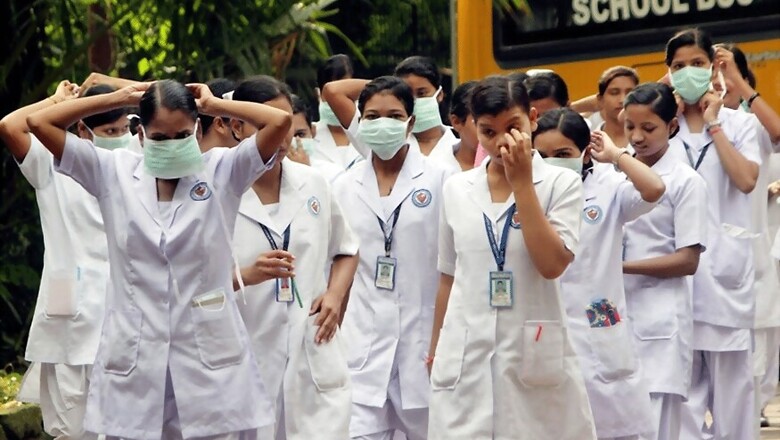Why Can't States Reserve PG Medical Seats for In-service Doctors: SC seeks Constitution Bench Ruling

views
New Delhi: Two years on, the Supreme Court has reopened the contentious issue and sought setting up of a Constitution Bench to outline the distribution of powers between Centre and states.
On Friday, a three-judge bench, headed by Justice Kurian Joseph, reignited the legal debate over the issue, which was earlier ruled in favour of the Central government.
The bench, also comprising Justices MM Shantanagoudar and Navin Sinha, referred the matter to the Chief Justice of India for setting up a Constitution Bench to settle the issue.
The Court said that the matter should be placed before the CJI "emergently" in view of the fact that the counselling has either commenced or in some states, it is only about to commence.
The bench gave liberty to the petitioners to mention the matter before CJI Dipak Misra on Monday to enable them press for an interim order.
The main plank of contention, as raised by Tamil Nadu Medical Officers Association and some doctors from Kerala, Maharashtra and Haryana, is over denial of reservation benefits to them for admissions in post-graduate degree courses although they are in-service candidates.
By a judgment in 2016, a three-judge bench had ruled that medial admission regulations issued by the Medical Council of India was a complete code on the subject and that only the Central government was empowered to make such rules.
This bench had held that the subject of determination of standards in higher and technical education was placed under the Union List and thus, states had no authority to frame laws or regulations therein.
It also maintained that when the Central government's regulation did not provide for reservation to in-service candidates, states could not do so within their authority.
However, arguing for a clutch of petitions, senior lawyers Mukul Rohatgi, Arvind Datar and KV Vishwanathan pointed out that medical education was a subject mentioned in the Concurrent List, and hence it remains a subject on which both the Centre and states can make laws.
"Being an Entry in the Concurrent List, the State is not denuded of its power to legislate on the manner and method for admissions to postgraduate medical courses," argued the lawyers, adding that 50 per cent of the seats even otherwise were allotted under the All India category with no preference to states.
It was further argued that the MCI regulations in fact itself authorised states to provide reservation benefits to in-service candidates for diploma courses.
"If there can be such a reservation in the case of postgraduate diploma courses, there is no justification for denying such a reservation in case of the postgraduate degree courses," the petitioners said.
Lawyers for the Central government and MCI opposed their plea and said that 2016 judgment has settled the debate in favour of exclusive authority of the Centre in framing rules of admissions.
But the Court noted that the earlier judgment did not consider the legislative entry with respect to medical admission, as also certain other judgments of the larger benches discussing the authority of state governments to administer medical admissions.
"In the above circumstances, we are of the view that these writ petitions require consideration by a larger Bench. Accordingly, place the matters before the Hon’ble Chief Justice of India for consideration by a larger Bench, emergently," directed the Court.















Comments
0 comment